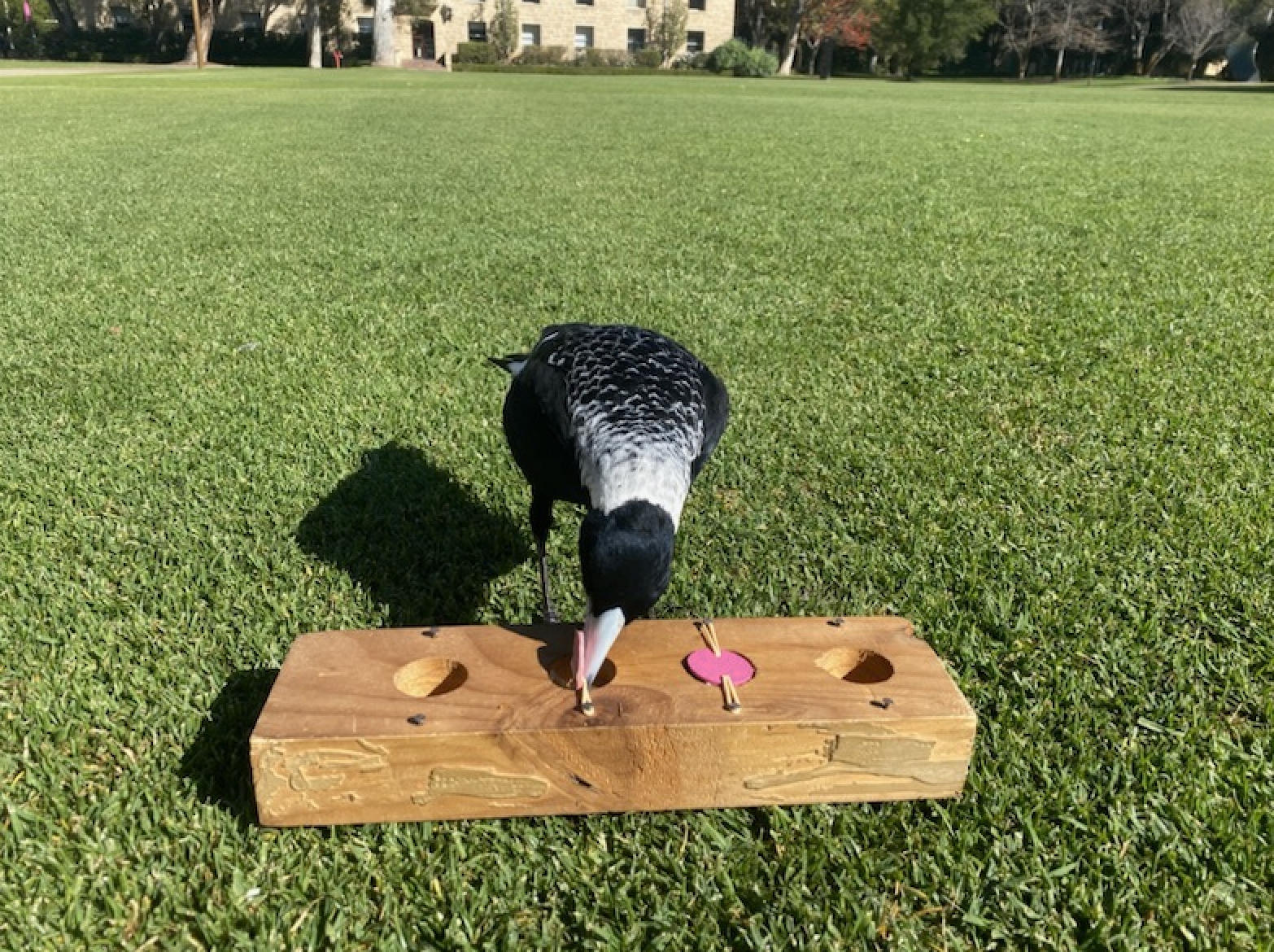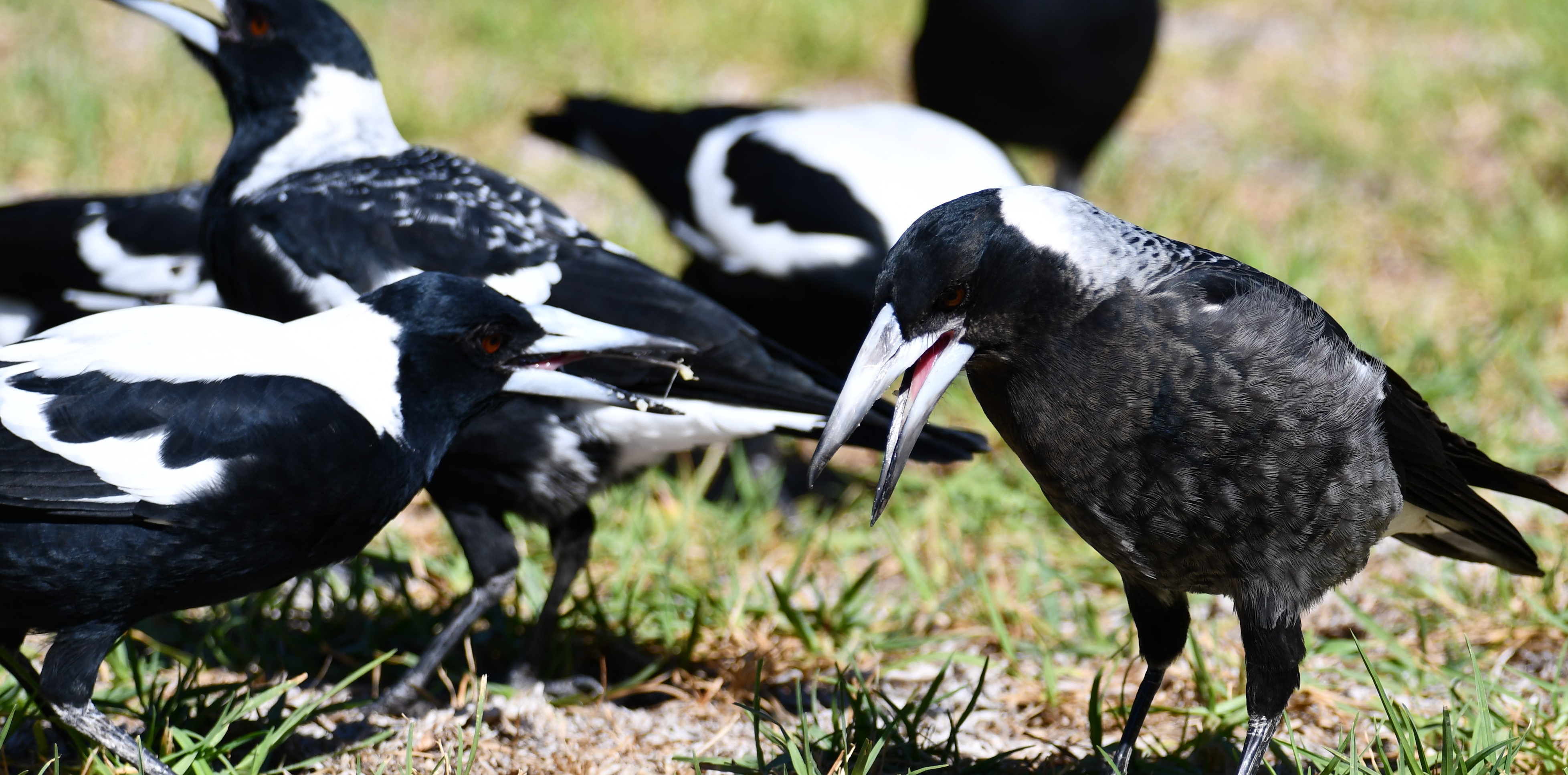Australian magpies are renowned for their intelligence, but they’re not all equally smart. A new study shows you can spot a stupid magpie by looking out for the ones who are nasty to their neighbors. Far from aggression being a survival trait, it might even be a response to being too stupid to know how to be nice.
Australian magpies are unrelated to the northern hemisphere birds of the same name. Although a small minority can be very aggressive to humans during the breeding season – mostly to bald men – they’re beloved for their beautiful songs. Recent research has shown they are among the smartest of birds, including demonstrating a remarkable capacity to get tracking devices off fellow members of their species.
That achievement doesn’t just demonstrate brains – it also shows how sociable magpies are, including admirable altruism. However, this trait is not universal. Just as some magpies like to swoop harmless passing humans with their razor-sharp beaks, some are very aggressive towards other magpies.
Dr Lizzie Speechley of the University of Western Australia and colleagues studied social networks among wild members of the Western Australian subspecies, Gymnorhina tibicen dorsalis, living in the suburbs of Perth in groups with an average of six adults. Their relationships were assessed using four measures: proximity, affiliative and agonistic interactions, and vocalization.The magpies were also given an intelligence test where they had to peck lids that swivel in response, with only the correct lid hiding a food reward.

A magpie spinning a PVC lid to seek a food reward. The different shades of color provide a clue as to which lid hides the tasty, tasty mozzarella beneath..
Image Supplied: Professor Mandy Ridley
Speechley’s PhD supervisor and co-author Professor Mandy Ridley told IFLScience the team had previously set magpies a range of tests to measure various aspects of intelligence. “But we found if they were good at one of them they were good at all,” so for this study they judged a single test sufficient.
“Consistent with previous research on this species, we found individuals in larger groups performed better on associative learning tasks,” Speechley said in a statement. “However, the magpies’ position in the social network also influenced their performance with individuals on the receiving end of aggression performing better, while those involved in aggressive interactions performed worse.”
Every school student bullied for being a nerd can relate.
“Group size is often used as a measure of social complexity, but this may not capture the variation in dynamics of social interactions within that group,” Speechley said. Small social networks may be more connected and diverse than larger ones, potentially creating additional evolutionary pressures. As the authors put it; “Cognitive performance is related to specific types of social interaction.”
This may explain why some studies have found evidence for predicted relationships between group size in animals and intelligence, but others have not.
The study authors attribute the relationship to the old proverb, “Necessity is the mother of invention.” If you get pushed out of the easily available resources by more aggressive members of the group, you need to be creative in identifying alternatives.

The side-eye from the bird on the right suggests it knows it’s dealing with an idiot.
Image supplied: Professor Mandy Ridley
Ridley said the team didn’t explore causality, so they can’t tell whether bullied magpies develop their intelligence in response, or if those too stupid to find new food sources bully their way to control of obvious ones instead.
However, in a previous paper they had found that more intelligent female magpies hatched more young and were more likely to raise them to adulthood than their less intelligent counterparts. “We only studied females for this because there is so much extra-pair mating [in magpies],” she added.
Ridley told IFLScience she studied magpies not simply to learn about the birds but; “Because they are a good vehicle to answer evolutionary questions.” The origins of human intelligence is one of the foremost of these. Ridley said she has no evidence humans are smart (relatively) because we descend from apes that got bullied, but; “It does make logical sense that those who can learn to avoid risk are more likely to pass on their genes.” Perhaps those who were more aggressive never felt the need to learn.
“Magpies live in cooperative social groups and this finding suggests being aggressive to your group members is not beneficial,” Speechley said.
At last at least part of the answer to Taylor Swift’s eternal question; “Why you gotta be so mean?”
The study is open access in Proceedings of the Royal Society B.
Source Link: Australian Magpies Prove Bullies Are Less Intelligent